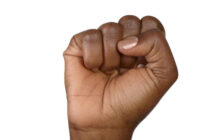Fair Observer's five best articles of May.
This has been an eventful month. A gory murder of a soldier in London has shocked much of the world. The barbarity that one associates with Africa and Afghanistan suddenly seems close to home. In the immediate aftermath of this tragedy, President Obama declared that the war on terror "like all wars, must end." In a thoughtful and bold speech, which is clearly not going down well with his Republican opponents, he acknowledged that drone "strikes have resulted in civilian casualties," and declared that "force alone cannot make us safe."
In another part of the world, where drone strikes have created much anguish, elections were held. Pakistan witnessed the first transition from one democratically elected government to another. Nawaz Sharif, ousted by General Musharraf the last time he was in power, has to deal with sectarian strife, growing Islamization and a sputtering economy.
Elsewhere, Mexico's stock markets fell and Chile's regulators have halted Barrick Gold Corporation from proceeding further on the world's highest mining project. Jorge Rafael Videla, the former Argentine military dictator, died in Marcos Paz prison. Perpetrator of the "Dirty War" that still haunts Argentina, he led the torture, murder and disappearance of thousands of his countrymen. He was involved in Operation Condor, a campaign of political repression to eradicate communism that left over 60,000 dead, along with dictators ruling Chile, Uruguay, Paraguay, Bolivia and Brazil. Kissinger and Reagan aided and abetted these dictators to "eliminate Marxist terrorist activities," in a dark phase in US history.
In Africa, Zimbabwe has a new constitution but the same 89-year-old Robert Mugabe is in power and is presiding over a food crisis in a country that was once Africa's bread basket. Kofi Annan, former secretary-general of the UN, has talked about Africa being deprived of the benefits of its resource book because of tax avoidance, financial transfers and secret mining deals. Tackling the resource curse remains one of the great challenges of our times. The leaders of two resource poor giants, India and China, met to smile for the cameras and sign eight agreements. None of these were substantive but the meeting did mitigate the military tension over territory that has plagued their relationship for over five decades.
Apple has been in the news again, not for the launch of a new gizmo but for its creative exploitation of tax codes. The issue here is not Apple or any specific corporation but the future of the world economy. In a global economy, corporations have to stay competitive. Shareholders are unforgiving and CEOs lose their jobs if they cannot deliver constant growth. Minimizing taxes is the rational choice. Given the extremely arcane and irrational nature of most tax codes, big firms can hire clever lawyers and park their cash in tax havens. Smaller firms cannot do so and are at a disadvantage. The current tax systems don't do a good job either in terms of efficiency or equity. Reforming them is the key challenge for political leaders but as yet, few have shown the courage to tackle this issue.
Only engaged citizens make for thriving societies, so send us articles, videos or presentations on issues that you care about whether it is tax reform or drone strikes. Meanwhile, please find below our best articles for the month and we look forward to hearing what you think.
1: What Ails India? Not What The Economist Says — by Prakhar Sharma
India needs to make structural, ideological and strategic transformations to assume a greater role in the world.
2: Towards a Pakistani Spring — by Bilal Ahmed
Bilal Ahmed argues that the discourse surrounding democracy in Pakistan is flawed, and that its liberal republican articulations will come to provoke additional mobilization in future years.
3: Alwiya Ahfaad ar-Rasool: A Growing Force in the Syrian Armed Opposition — by Nicholas A. Heras
Alwiya Ahfaad ar-Rasool is a growing force against the al-Assad government in Syria. It is poised to become one of the most heavily observed and commonly cited fighting forces of the Syrian Civil War.
4: A Firsthand Account of Life in Gaza — by Peter Smith and Catherine Thick
Over the past five years, humanitarian health workers Peter Smith and Catherine Thick have visited the Gaza Strip and the West Bank numerous times. The suffering they have seen in Gaza has prompted them to share their experiences, and call for a just and equitable peace between Israel and Palestine.
5: The Arab Spring and Africa's Place in History — by Jonathan Hill
Dr. Jonathan Hill looks at the coining of phrases surrounding "Spring Revolutions" and how Africa follows its own path.
Image: Copyright © Shutterstock. All Rights Reserved
Support Fair Observer
We rely on your support for our independence, diversity and quality.
For more than 10 years, Fair Observer has been free, fair and independent. No billionaire owns us, no advertisers control us. We are a reader-supported nonprofit. Unlike many other publications, we keep our content free for readers regardless of where they live or whether they can afford to pay. We have no paywalls and no ads.
In the post-truth era of fake news, echo chambers and filter bubbles, we publish a plurality of perspectives from around the world. Anyone can publish with us, but everyone goes through a rigorous editorial process. So, you get fact-checked, well-reasoned content instead of noise.
We publish 2,500+ voices from 90+ countries. We also conduct education and training programs
on subjects ranging from digital media and journalism to writing and critical thinking. This
doesn’t come cheap. Servers, editors, trainers and web developers cost
money.
Please consider supporting us on a regular basis as a recurring donor or a
sustaining member.
Will you support FO’s journalism?
We rely on your support for our independence, diversity and quality.






Comment